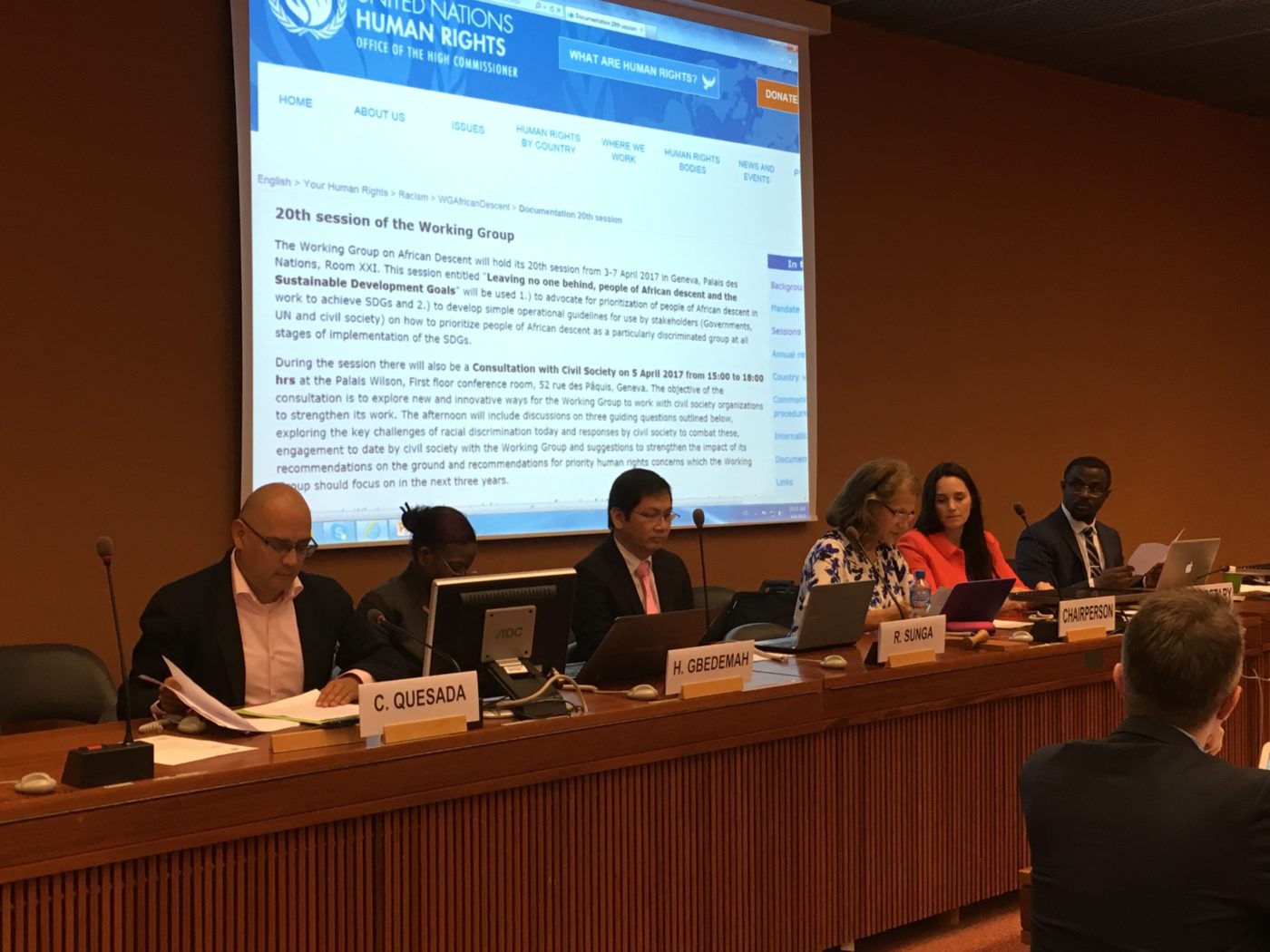The Institute Participates in the Working Group of Experts on People of African Descent
Geneva, Switzerland. April 7th 2017. The World Conference against Racism, Racial Discrimination, Xenophobia and Related Intolerance, held in Durban in 2001, adopted the Durban Declaration and Programme of Action which specifically “requests the Commission on Human Rights to consider establishing a working group or other mechanism of the United Nations to study the problems of […]

Geneva, Switzerland. April 7th 2017. The World Conference against Racism, Racial Discrimination, Xenophobia and Related Intolerance, held in Durban in 2001, adopted the Durban Declaration and Programme of Action which specifically “requests the Commission on Human Rights to consider establishing a working group or other mechanism of the United Nations to study the problems of racial discrimination faced by people of African descent living in the African Diaspora and make proposals for the elimination of racial discrimination against people of African descent”.
The Working Group of Experts on People of African Descent (WGEPAD) was then established in 2002 by the Commission on Human Rights resolution 2002/68 as a Special Procedure. The mandate has been subsequently renewed by the Human Rights Council and holds two annual sessions in Geneva since then, composed by five independent experts from all regions.
The WGEPAD held its 20th session this week in Geneva. The session was entitled “Leaving no one behind, people of African descent and the Sustainable Development Goals” and its main priorities were to advocate for the prioritization of people of African descent in work to achieve SDGs and to develop simple operational guidelines for use by stakeholders (Governments, UN and civil society) on how to prioritize people of African descent as a particularly discriminated group at all stages of implementation of the SDGs.
The International Institute on Race, Equality and Human Rights’ Executive Director, Carlos Quesada, was invited to be part of a panel discussion on “How to Reduce Inequalities, SDG 10” together with WGEPAD’s member Ricardo Sunga and Ms.Hilary Gbedemah, member of the Committee on the Elimination of all forms of Discrimination against Women (CEDAW) were he discussed the inequalities and challenges of Afro-descendants in the Latin American region. The full speech can be found in this link.
Further during the session, the WGEPAD held a three-hour consultation with civil society actors with the objective of exploring new and innovative ways for the Working Group to work with civil society organizations to strengthen its work. The consultation included discussion on 1) exploring the key challenges of racial discrimination today and responses by civil society to combat them; 2) engagement to date by civil society with the Working Group and suggestions to strengthen the impact of its recommendations on the ground and 3) recommendations for priority human rights concerns which the Working Group should focus on in the next three years.
The Institute also participated in this consultation, the full webcast can be found here.

